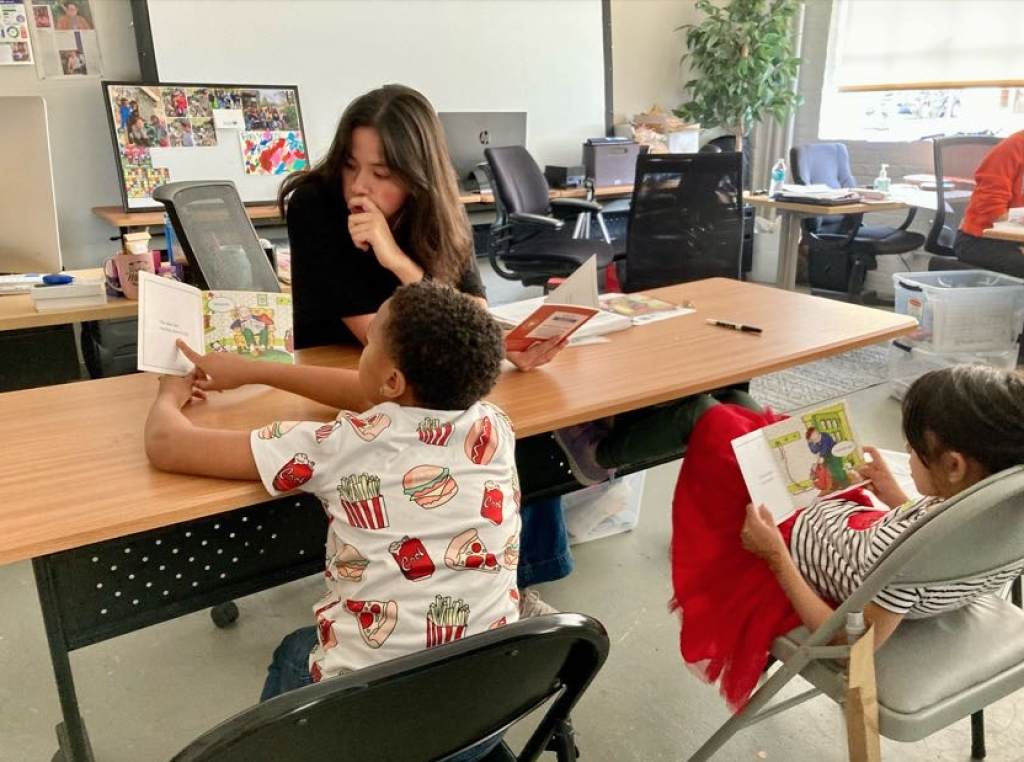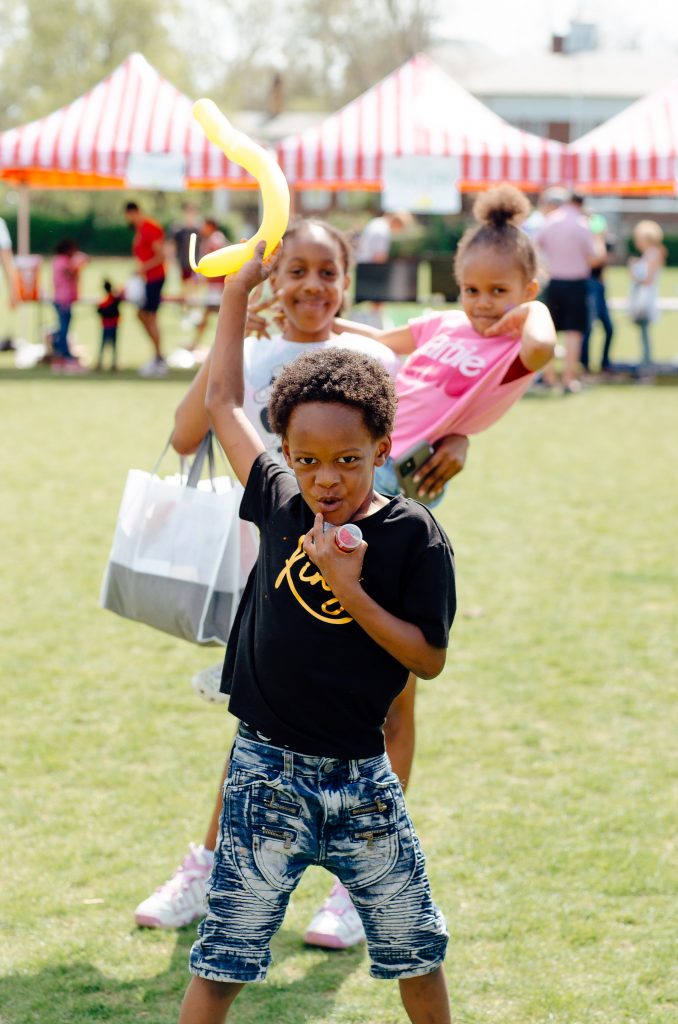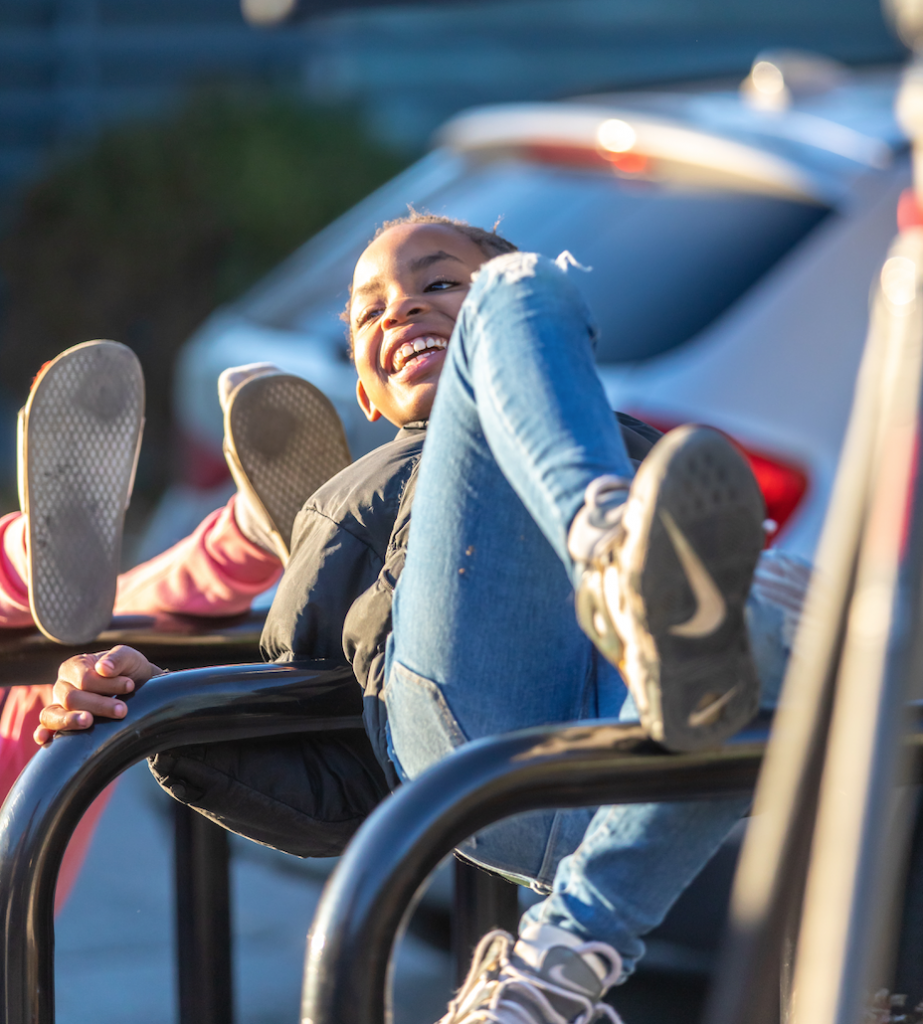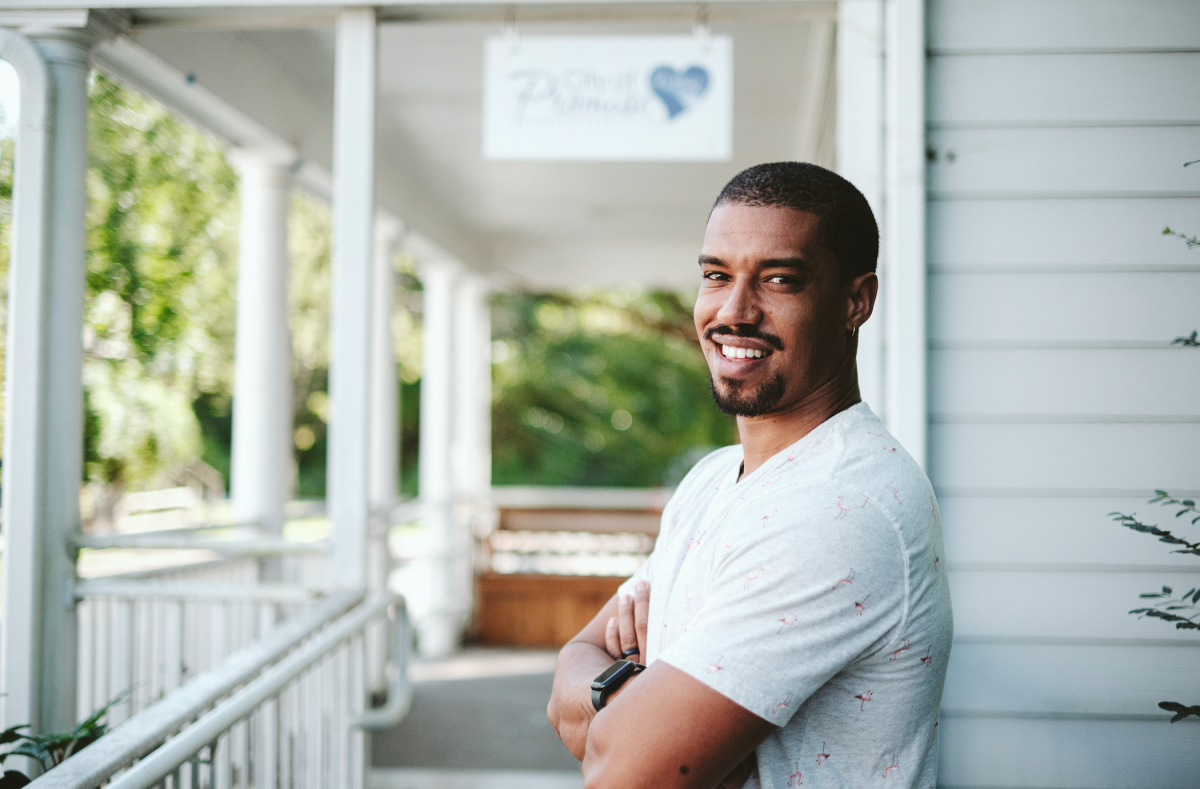As the executive director of City of Promise, Price Thomas is working to improve education access in Charlottesville. But for the born-and-raised local, this job is more than a profession—it’s personal.
“This is Charlottesville, a part of my story,” he says, “and I want the next chapter to be marked by something better than the one previous.”
Located in the heart of the 10th and Page neighborhood, City of Promise has been working toward interrupting local cycles of generational poverty through education for more than a decade.
“A lot of what we’re experiencing are reverberations of issues that are going on around the state, around the country,” Thomas says. “But those aren’t sidewalks I’ve walked, those aren’t people I know, those aren’t schools that I went to.”
“There is a piece of this that is objectively personal for me … I can’t do this and go home, because this is home for me.”
The son of two local educators, Thomas attended Charlottesville City and Albemarle County schools. After graduating from William & Mary, where he was a four-year starter on the soccer team, Thomas played professional soccer in Europe before returning stateside to work as a copy editor. Over the last several years, he’s set down roots in Charlottesville, where he is raising two children with his wife, Caitlin.
Thomas’ work with City of Promise is only his latest position in nonprofits. Prior to joining COP in May 2023, he worked with The Montpelier Foundation and United Way of Greater Charlottesville.

“Charlottesville is a small town, and the nonprofit world of Charlottesville is even smaller,” he says. Through his work with The Montpelier Foundation and United Way, he met and learned from other nonprofit leaders, including previous directors of City of Promise. In his 18 months on the job at COP, he’s been figuring out what unique “flavor” he brings to the organization.
City of Promise “started way before me, will live on and succeed far past me,” he says. “But in this moment of time, what is my flavor? … I want us to be both taken very seriously and also very approachable.” Transparency and authenticity between City of Promise and the community are all priorities for the executive director, but not at the expense of agency. “We’ll walk alongside [community members], but we’ll also hold them accountable.”
In the beginning
Inspired by a work group of the Charlottesville Dialogue on Race in 2010, City of Promise developed through a Department of Education Promise Neighborhood planning grant of $470,000 that was awarded to Children Youth and Family Services in 2011. The national, place-based initiative bolsters communities experiencing barriers to education success, including economic hardship and disparity, through funding and recommending strategies and solutions.
City of Promise did not receive implementation funding through the DOE Promise Neighborhood program, but the initial grant was enough to get the nonprofit off the ground. Over the last decade, COP’s focus on improving education access and outcomes has remained at the core of its mission—especially in the area of literacy.
Despite district reading scores hovering near the state average, Charlottesville City Schools have one of the highest literacy gaps in Virginia. As a district, 65 percent of its students achieved proficiency in reading for the 2023-2024 school year, compared to a state average of 73 percent. The data breakdown shows a more striking achievement gap: During the 2023-2024 school year, 40 percent of Black CCS students passed English reading testing, compared to 89 percent of their white peers.

Coming into City of Promise, Thomas took the opportunity to refocus the nonprofit’s offerings, taking a “whole family” approach to education access.
“It’s a mindset of helping our community members—parents and students—to feel both supported and challenged to that level of excellence,” says Thomas. “I don’t care where you came from, or how much money you have, or the car you drive, or the clothes you wear, the color of your skin—your job’s to be great. My job’s to help you be great. But ultimately, you’re going to leave the school reading the same books as that kid from Rugby Road, full stop. Period. The way you get there might be a little different, and that’s okay.”
City of Promise cornerstone programs include the Pathway Coaching, Dreambuilders, and LaunchPad Initiative, a pilot program in partnership with CCS and the University of Virginia education school that deploys the Virginia Community School Framework. The LaunchPad Initiative addresses non-academic barriers to support under-resourced students and families, thus improving outcomes. While currently only at Trailblazer (formerly Venable) Elementary, COP hopes to expand the initiative to the remaining CCS elementary schools.
The LaunchPad Initiative is the earliest direct (that is, not accessed through a parent already receiving coaching) program offered by City of Promise.
“It’s about quality at every developmental level. … Starting earlier is critically important,” Thomas says. “Often our theory of intervention is a little too late. We’re starting a little too late, and we’re working uphill. As we start to shape ourselves as an organization, as we start to partner with other nonprofits and for profits, there’s always that little bell that goes off that’s like, we’ve got to do this quicker.”
Similar to the LaunchPad Initiative, COP also offers support through Pathway Coaching. Both offerings aim to bolster students’ academic and socioemotional growth. Coaches employed by the nonprofit mentor students between fifth and 12th grade, helping with access to academic and extracurricular opportunities.
Dreambuilders, City of Promise’s only program that requires an application, fosters family and student success by providing parents and their children with tools for self-sufficiency, including tailored instruction and microfinancing of $5,000. The program utilizes evidence-based resources like the National Center for Families Learning frameworks, but takes an individualized approach tailored to participant needs.
“Everything should feel like it fits together; these are not intended to be three distinct programs. They are really intended to be kind of three self-reinforcing pieces of the same whole,” says Thomas. “If our adults are more efficacious and more confident, that’s great for our kids, who are receiving a whole host of high-quality services.”
Beyond programming, students and families involved in the LaunchPad Initiative, Pathway Coaching, or Dreambuilders can access resources through City of Promise’s Gateway Services. While the application-based financial support service is a critical component of COP’s network, the nonprofit is also helping community members by acting as a convener of resources.
Getting resourceful
Meeting participants’ basic needs, whether through directly providing resources or connecting people with the appropriate nonprofit, is a key first step in improving education access and disrupting generational poverty.
Navigating Charlottesville’s expansive network of nonprofits can be confusing, but Thomas says City of Promise is uniquely positioned, literally and strategically, to help community members locate and access the right resources. The nonprofit’s location in the 10th and Page neighborhood allows not only more convenient access for many of the students and families it serves, but for the organization to more effectively build relationships and trust within the community.
“City of Promise remains an intimate, proximal organization that is able to be nimble and is able to have more of a finger on the pulse,” says Thomas. “That is what’s most important to us.”
Addressing barriers beyond the classroom is a key part of COP’s work to improve education access. While the nonprofit can’t fully resource every program participant alone, it can help connect people with other local organizations—including ReadyKids for teen mental health, Network2Work for jobs and job training, and Cav Futures Foundation for mentoring.

By more intentionally utilizing the large nonprofit community in the Charlottesville area, City of Promise hopes to collaboratively help families access resources in a way that is both more effective and more expansive.
“For these kids, for these families, it’s not just housing, it’s not just workforce development, it’s not just child care, health care; it’s everything altogether all the time,” he says. “We have to understand that we can’t isolate these tenants in this constellation of care. … We have to figure out how to link arms with other community organizations.”
Meeting participants’ immediate needs while simultaneously building a more proactive support network is a difficult balancing act for any organization, including City of Promise.
“We’re fighting this battle between people with immediate needs that we need to react to, but also not doing that at the expense of being thoughtful about what happens tomorrow,” he says.
At the end of the day, the quantitative, simple answer for how the nonprofit can most effectively help community members is money. Whether through funding for programs or resources, everything boils down to cash flow. But to make a meaningful dent in disrupting cycles of generational poverty, Thomas says City of Promise needs community buy-in and feedback.
“It’s not cheap, and I don’t think it should be. I don’t think we should pretend the folks who live in public housing and these kids and these families should have access to anything less than the rest of us, than your kids, my kids, and all these other little knuckleheads. … That’s [why] I’m here: to kick and scream for [it],” he says. “I think it’s my job now to be the loudest person in the room, but I don’t expect that to be the case for a long time. I don’t want it to be the case for a long time.”
An agentic community and participants not only boosts individual success, but helps City of Promise learn what is and isn’t working directly from the people it hopes to help.
“I think sometimes [nonprofits] say we’re the helpers, we know what the help is. … Feedback has to be incorporated and I want [people] to feel like that’s available,” says Thomas. “The demonstration of success is not how I feel about it or whether people liked that I did it. It’s, does it work for the people for whom it is intended to work for? And at the end of the day, if we can’t say yes to that, we gotta find a way to make that happen.”
Thomas is under no illusions that City of Promise will end generational poverty in his time as executive director, but he is fighting to leave the nonprofit—and Charlottesville—better through his work.
“I want to make sure that we leave this in a way that we furthered the mission, that we’ve moved it forward, that we’ve gotten closer to whatever that huge goal is, that first pie in the sky—we’re going to end generational poverty,” he says. “We have to be very clear that it’s not going to happen today, tomorrow or next week. It’s going to happen by a mosaic of 1,000 little things every single day.”








